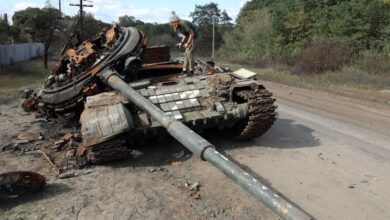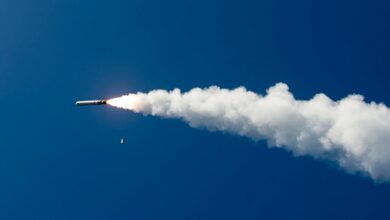Bulgaria’s parliament Thursday green-lit sending military aid to Ukraine, after a previous decision to refrain from directly supplying arms to the war-torn country following Russia’s invasion.
Lawmakers gave the interim government one month to draw up a proposal of how much of its Soviet-era military equipment it could possibly dispatch.
Bulgaria, once a signatory to a defense pact with the USSR, still flies a small number of Soviet-built MiG-29 fighter jets that Ukraine has been pressing to receive as its pilots know how to fly them.
The Balkan country also has S-300 long-range surface-to-air missiles, but Defence Minister Dimitar Stoyanov earlier this week said his country could not afford to part with them.
Bulgaria is a member of NATO and the European Union, but still has close historical, cultural, and economic ties with Moscow.
Public opinion in the Balkan country remains deeply divided, with a large part of the population supporting Moscow’s invasion.
A total of 175 lawmakers voted in favor of the decision to ship over military aid on Thursday, while 49 were against and one abstained.
The pro-Russian ultra-nationalist Vazrazhdane party and the Socialists opposed the decision.
Vazrazhdane staged a small protest outside parliament, warning that sending Ukraine military aid would strip Bulgaria of its defense capacities.
Socialist lawmaker Kristian Vigenin described the decision as “hasty and ill-prepared, (taken) without the necessary analysis of the risks to our country.”
The previous parliament fell short of approving sending military aid, but sanctioned the repair of Ukrainian tanks on Bulgarian soil as well as sending helmets and flak jackets.
Bulgaria, which is a big producer of light arms and ammunition, has played down media reports that it already indirectly supplies ammunition to Ukraine through contracts with Poland and the United States.
Data published by the country’s main factories however shows that their production had tripled since the start of the war in Ukraine.












